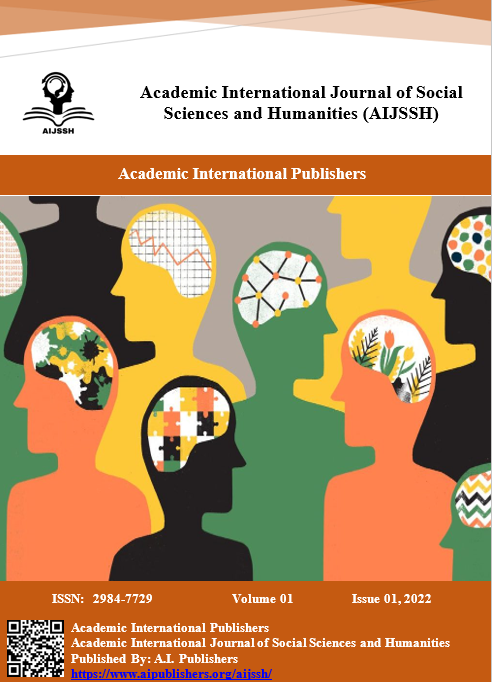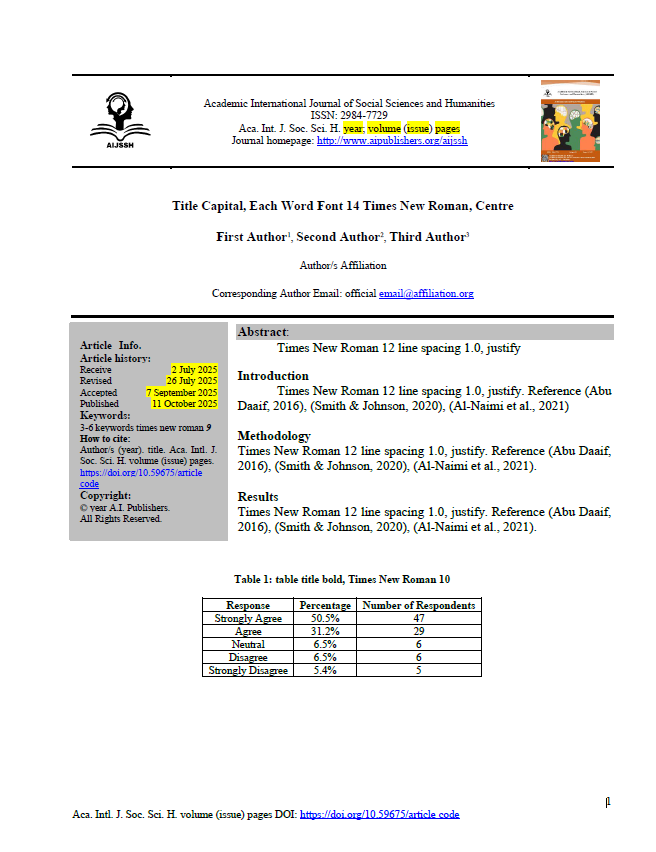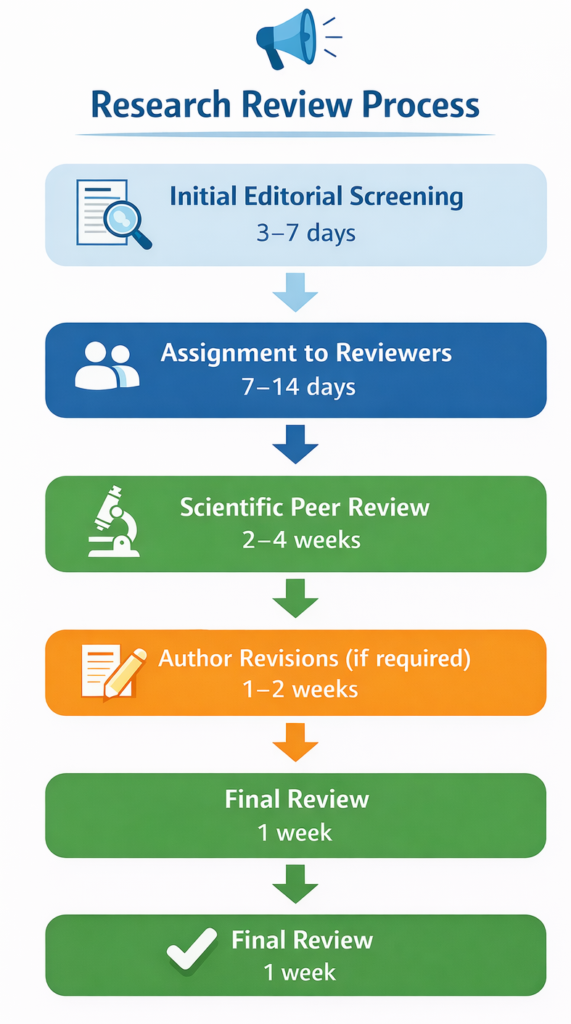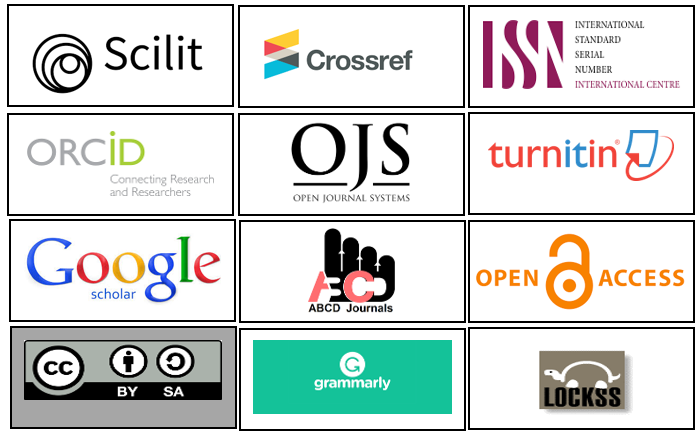Enhancing Students’ Achievement in Basic Science Using Blended Learning Strategy
DOI:
https://doi.org/10.59675/S224Keywords:
Blended learning strategy, achievement, gender, basic scienceAbstract
The investigation explored the effect of blended learning on basic science students' performance. Additionally, the study determined how gender affects students' learning outcomes when utilizing a blended learning strategy. This study took place in Aguata Education Zone of Anambra State. Across the 50 public secondary schools that composed the Zone, 2,950 Upper Basic VIII students comprised the population. For the study, a sample size of 97 students (39 males & 58 females) was employed. Two of the Zone's three Local Government Areas (LGAs) were sampled using a simple random sampling technique. Additionally, one coeducational school was chosen from the two sampled LGAs and assigned to the experimental and control groups using a purposive sampling technique. The data collection tool was the Basic Science Achievement Test. BSAT was discovered to have a dependability index of 0.81 using Kuder-Richardson 20 (K-R20). The mean and standard deviation were used to answer the study questions, and the covariance (ANCOVA) analysis was used to evaluate the hypotheses at the 0.05 significance level. The study's findings showed that students' achievement in basic science is significantly improved when a blended learning strategy is used instead of a traditional lecture format. Furthermore, when teaching basic science using a blended learning approach, there is no appreciable difference in the mean achievement scores of male and female students. The researchers made several recommendations, such as that basic science and other courses should be taught by teachers using the BLS. The pre-service and in-service teacher should be provided with basic ICT training through conferences and seminars.
References
Abidoye J. A. (2015). The effect of blended learning instructional approach on secondary school students’ academic achievement in geography in Akure, Ondo State, Nigeria. Research Journal of Educational Studies and Review, 1(5), 106-110. http://pearlresearchjournals.org/journals/rjesr/index.html
Afolabi, O. A. & Afolabi, M. O. (2016). Blended learning in Nigeria: A review of the challenges and prospects. International Journal of Education and Development using Information and Communication Technology, 12(2), 127-141.
Agbidye, N. (2015). Challenges and prospects in the teaching of basic science at the upper basic level in Nigeria. Journal of Qualitative Education, 11(1), 17-19.
Ajai, J. T., & Imoko, B. I. (2015). Gender differences in mathematics achievement and retention scores: A case of problem-based learning method. International Journal of Research in Education and Science, 1(1), 45–50. DOI: https://doi.org/10.21890/ijres.76785
Alsalhi, N. R., Eltahir, M. E., & Al-Qatawneh, S. S. (2019). The effect of blended learning on the achievement of ninth grade students in science and their attitudes towards its use. Heliyon, 5(9), e02424. https://doi.org/10.1016/j.heliyon.2019.e02424 DOI: https://doi.org/10.1016/j.heliyon.2019.e02424
Annie, W. (2021). Achievement and ability tests - definition of the domain. Educational Measurement, 2 (1), 2–5.
Boe, T. (2018). E-learning technology and higher education: The impact of organizational trust. Tertiary Education and Management,24(4), 362– 376.
Boelens, R., De Wever, B., & Voet, M. (2017). Four key challenges to the design of blended learning: A systematic literature review. Educational Research Review, 22, 1–18. https://doi.org/10.1016/j.edurev.2017.06.001 DOI: https://doi.org/10.1016/j.edurev.2017.06.001
Çiftçi, B. (2020). The effect of blended learning on academic achievement and attitudes at social studies courses. Open Journal for Educational Research, 4(2), 143-150. DOI: https://doi.org/10.32591/coas.ojer.0402.05143c
Diovu, C. I Ogbonna, C. C. & Eze, S. I. (2021). The effect of blended learning on senior secondary school students’ achievement in mathematics in private secondary schools in Nsukka Local Government Area. IDOSR Journal of Experimental Sciences, 6(1) 15-24.
Eze, C. U., Egbo, J. J. & Omeje, C. O. (2018). Improving senior secondary school students' achievement in chemistry through programmed instruction strategy. 59th Annual conference proceedings of STAN, 186-192.
Ezeudu, F. O., Nwafor, S. C., Abaeme, O. D., Alabi, A. O., Chukwuka, C. U. & Ikuelogbon, E. O. (2019). Effect of scaffolding and hand-on instructional approaches on senior secondary school students’ achievement and interest in Chemistry. Research Journal of Applied Sciences, 14(5), 170-178. Doi: 10.36478/rjasci.2019.170.178 DOI: https://doi.org/10.36478/rjasci.2019.170.178
Federal Government of Nigeria (2014). National policy on education. Lagos: NERDC Press.
Federal Republic of Nigeria (2007). Junior secondary school basic science curriculum. Lagos: NERDC Press.
Gambari, A. I., Shittu, A. T., Ogunlade, O. O., & Osunlade, O. R. (2018). Effectiveness of blended learning and elearning modes of instruction on the performance of undergraduates in Kwara State, Nigeria. Malaysian Online Journal of Educational Sciences, 5(1), 25-36.
Garrison, D. R., & Vaughan, N. D. (2018). Blended learning in higher education: Framework, principles, and guidelines. John Wiley & Sons.
Godpower-Echie, G., & Owo, W.J. (2019). Gender differences in basic science achievement of private junior secondary school students in Obio/Akpor local Government Area, Rivers State. International Journal of Scientific Research in Education, 12(2), 320-329.
Hanan,J.A.,Marie-Anne M.,& Lori K. (2015). The effect of age and Gender on student Achievement in face-to-face and online college alagebra classes. Research in Higher Education Journal, 27, 1-22. https://www.aabri.com/manuscripts/142077.pdf
Hubackova, S., and Semradova, I. (2016). Evaluation of blended learning. Proc. Soc. Behav. Sci. 217, 551–557. doi: 10.1016/j.sbspro.2016.02.044 DOI: https://doi.org/10.1016/j.sbspro.2016.02.044
Ifelunni, C. O. (2018). Child labour, motivation and cognitive style as determinants of academic achievement of primary school pupils in Mathematics in South-East, Nigeria. [Unpublished PhD Thesis], University of Nigeria, Nsukka.
Irwan, Angraini, R. & Tiara, M. (2020). Analysis of student interest on blended learning. Advances in Social Science, Education and Humanities Research, 458, 329-335. DOI: https://doi.org/10.2991/assehr.k.200803.041
Jetu, R. R. & Wariso, H. (2019). identifying factors affecting students' academic achievement inscience and mathematics in primary schools of Hawassa City. Journal of Education and Practice, 10(10), 56-67.
Karsenti, T., Dumouchel, G., Roy, N., Goyer, L., & Noël, N. (2017). L’enseignement hybrideen enseignement supérieur: pratiques, enjeux et défis. Revue internationale des technologies en pédagogie universitaire, 14(2-3), 38-57. DOI: https://doi.org/10.18162/ritpu-2017-v14n1-04
Khader, N. S. K. (2016). The effectiveness of blended learning in improving students’ achievement in third grade’s science in Bani Kenana. Journal of Education and Practice, 7(35), 109–116.
Kumar, A., Krishnamurthi, R., Bhatia, S., Kaushik, K., Ahuja, N. J., Nayyar, A., & Masud, M. (2021). Blended learning tools and practices: A comprehensive analysis. IEEE Access, 9, 85151–85197. https://doi.org/10.1109/ACCESS.2021.3085844 DOI: https://doi.org/10.1109/ACCESS.2021.3085844
Lalima, D., & Lata Dangwal, K. (2017). Blended learning: An innovative approach. Universal Journal of Educational Research, 5(1), 129–136. https://doi.org/10.13189/ujer.2017.050116 DOI: https://doi.org/10.13189/ujer.2017.050116
Lee, L., & Hung, J. C. (2015). Effects of blended e-learning: a case study in higher education tax learning setting. Human-centric Computing and Information Sciences, 5(13), 1-15. Doi: 10.1186/s13673-015-0024-3 DOI: https://doi.org/10.1186/s13673-015-0024-3
López-Pérez, M. V., Pérez-López, M. C., & Rodríguez-Ariza, L. (2017). Blended learning in higher education: Students’ perceptions and their relation to outcomes. Computers & Education, 56(3), 818-826. DOI: https://doi.org/10.1016/j.compedu.2010.10.023
Mahrlamova, K., & Chabanovych, N. (2022). Implementation of interactive methodology in medical education: Blended learning approach, e-learning, and conventional learning. Health Education and Health Promotion, 10(2), 303–308.
Makarova, E., Aeschlimann, B. & Herzog, W. (2019). The gender gap in STEM Fields: The impact of the gender stereotype of Math and science on secondary students’ career aspirations. Frontiers of Education, 4(60), 1-11. DOI: https://doi.org/10.3389/feduc.2019.00060
Mustafa, A. N. (2023). An examination of the advantages and disadvantages of blended learning. International Journal of Research Publication and Reviews, 4(12), 1159-1166. https://doi.org/10.55248/gengpi.4.1223.123405 DOI: https://doi.org/10.55248/gengpi.4.1223.123405
Nichols, J. (2010). Blended learning: The construction uses in instructional development. Document Reproduction Service, 298-908.
Nwafor, S. C., Ibe, F. N. & Muoneke, N. M. (2022). Optimizing information and communication technology applications in chemistry learning. Journal of Research in Instructional, 2(2), 151-162. Doi: 10.30862/jri.v2i2.92 DOI: https://doi.org/10.30862/jri.v2i2.92
Nworgu, B. G. (2018). Educational research: Basic issues and methodology (3rd Edition-Reprinted). Nsukka: University Trust Publishers.
Odukwe, O. C. & Nwafor, S. C. (2022). Effect of guided-inquiry method on senior secondary school chemistry students’ academic achievement in Anambra State, Nigeria. Unizik Journal of Educational Research and Policy Studies, 11(1), 151-161. https://unijerps.org
Okebukola, P. A. & Okebukola, F. O. (2018). Basic science and technology for junior secondary schools. Lagos: Tonad Publishers.
Okorie, E.U. & Ezeh, D. N, (2016). Influence of gender and location on students’ achievement in chemical bonding. Mediterranean Journal of social sciences, 7(3), 309-318.
Olatunde-Aiyedun, T. G., & Adams, S. O. (2022). Effect of Blended Learning Models on Students’ Academic Achievement and Retention in Science Education. Eurasian Journal of Science and Environmental Education, 2(2), 35-42. https://doi.org/10.30935/ejsee/12613 DOI: https://doi.org/10.30935/ejsee/12613
Omiko, A. (2016). An evaluation of classroom experiences of basic science teachers in secondary schools in Ebonyi State of Nigeria. British Journal of Education, 4(1), 64-76.
Onyenma C. & Abraham, L. N. (2020). Effect of blended learning on students' academic performance in physics in Federal Colleges of Education in Southeast, Nigeria. British Journal of Education, 8(1), 66-77. DOI: https://doi.org/10.37745/bje/vol8.no1.pp66-77.2020
Onyi, I. E, Njoku, Z. C. & Nwafor, S. C. (2022). Efficacy of problem-based learning in promoting high achievement of students in chemistry. Journal of Critical Reviews, 09(01), 49-57. Retrieved from https://www.jcreview.com/admin/Uploads/Files/61d694d54 bc2d1.24608275.pdf
Owo, W. J. & Ihua-Maduenyi, G. N. (2020). A study of the cogency of blended learning on interest and academic success of students in science in rivers state secondary schools. Vocational and Technology Education Journal (VOTEJ),2(1),113-124.
Picciano, A. G. (2019). Blended learning: Implications for growth and access. Journal of Asynchronous Learning Networks, 23(4), 1-5. DOI: https://doi.org/10.24059/olj.v10i3.1758
Rouhollah, K., &Shaffe-bin, M. D. (2014). Moderation effect of gender on relationship Between community of inquiry and perceived learning in blended learning environments. Contemporary Educational Technology, 5(3), 257-271. http://www.cedtech.net/articles/53/535.pdf DOI: https://doi.org/10.30935/cedtech/6128
Saadu U. T. (2022). Chapter 16, Effect of blended learning teaching strategy on the academic performance of pupils in social studies. In the Blended Teaching and Learning- Methods & Practices, 96-105. https://api-kwasuspace.kwasu.edu.ng/server/api/core/bitstreams/54d0e0de-4ac0-4544-b7c7-d692803b6d03/content
Saba, B. K., Odediji, E. I. & and Chiroma, A. A (2022). Effects of blended learning strategy on academic performance of social studies students in Kwara State. The Nigerian Educational Digest (NED), 15(1), 63-71.
Singh, J., Steele, K., & Singh, L. (2021). Combining the best of online and face-to-face learning: hybrid and blended learning approach for COVID- 19, post vaccine, & amp; post-pandemic world. Journal of Educational Technology Systems, 50(2), 140–171. https://doi.org/10.1177/00472395211047865 DOI: https://doi.org/10.1177/00472395211047865
Tolland, L. & Evans, J. (2019). What is the difference between sex and gender?https://www.ons.gov.uk/economy/environmentalaccounts/articles/whatisthedifferencebetweensexandgender/2019-02-21
Utami, I. S. (2018). The effect of blended learning model on senior high school students’ achievement. In SHS Web of Conferences (Vol. 42, p. 00027). EDP Sciences. DOI: https://doi.org/10.1051/shsconf/20184200027
Vygotsky, L. S. (1978). Mind in Society: The development of higher psychological processes. Cambridge: Harvard University Press.
Warner, A. G. (2016). Developing a community of inquiry in a face-to-face class. Journal of Management Education, 40(4), 432–452. https://doi.org/10.1177/1052562916629515 DOI: https://doi.org/10.1177/1052562916629515
Zrekal (2021). The Effectiveness of Blended Learning In EFI Contaxt: An Experiment Study At Arab Open University KSA. Turkish Online Journal of Qualitative Inquiry (TOJQI), 12(7), 9284 -9293.
Downloads
Published
Issue
Section
License
Copyright (c) 2024 Academic International Journal of Social Sciences and Humanities

This work is licensed under a Creative Commons Attribution 4.0 International License.






